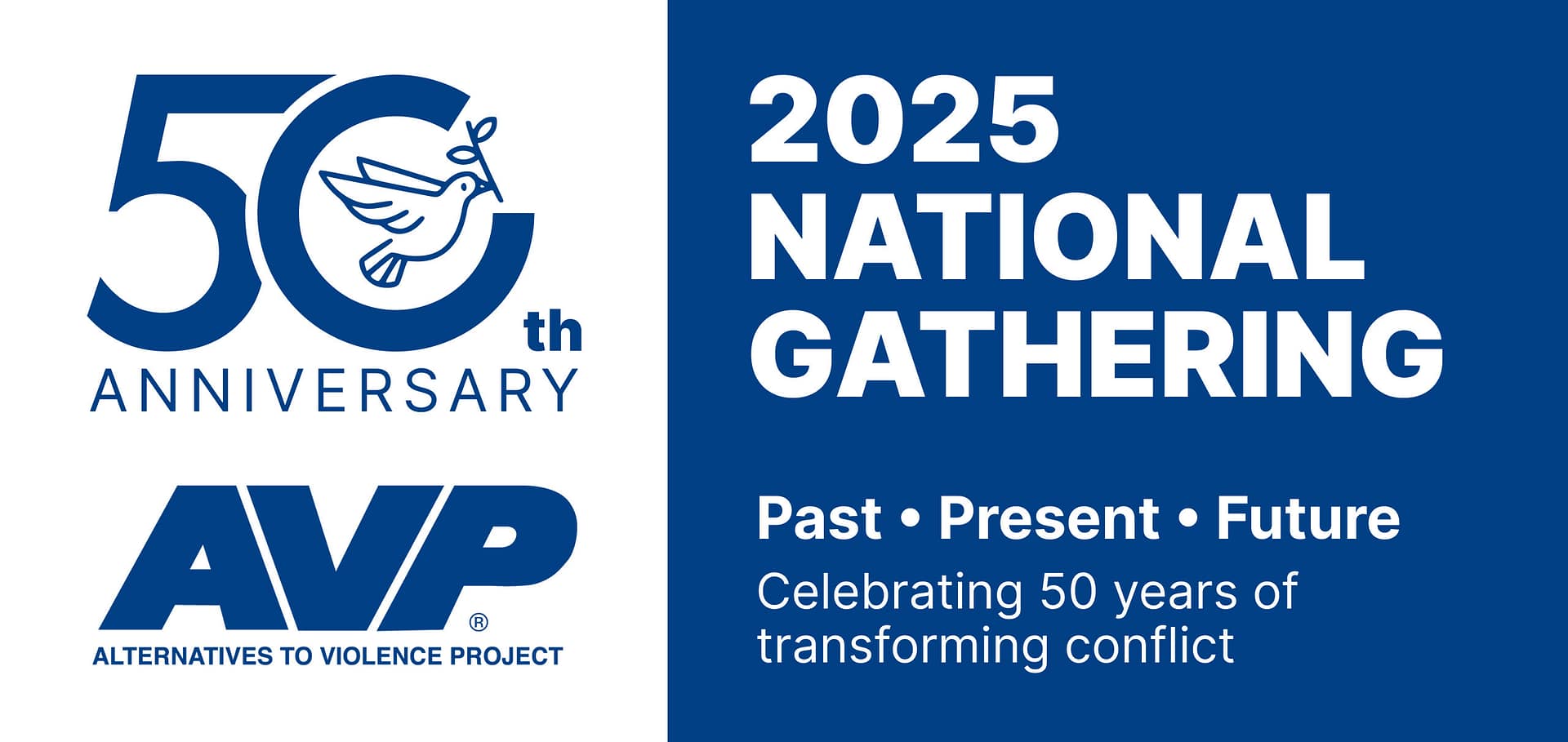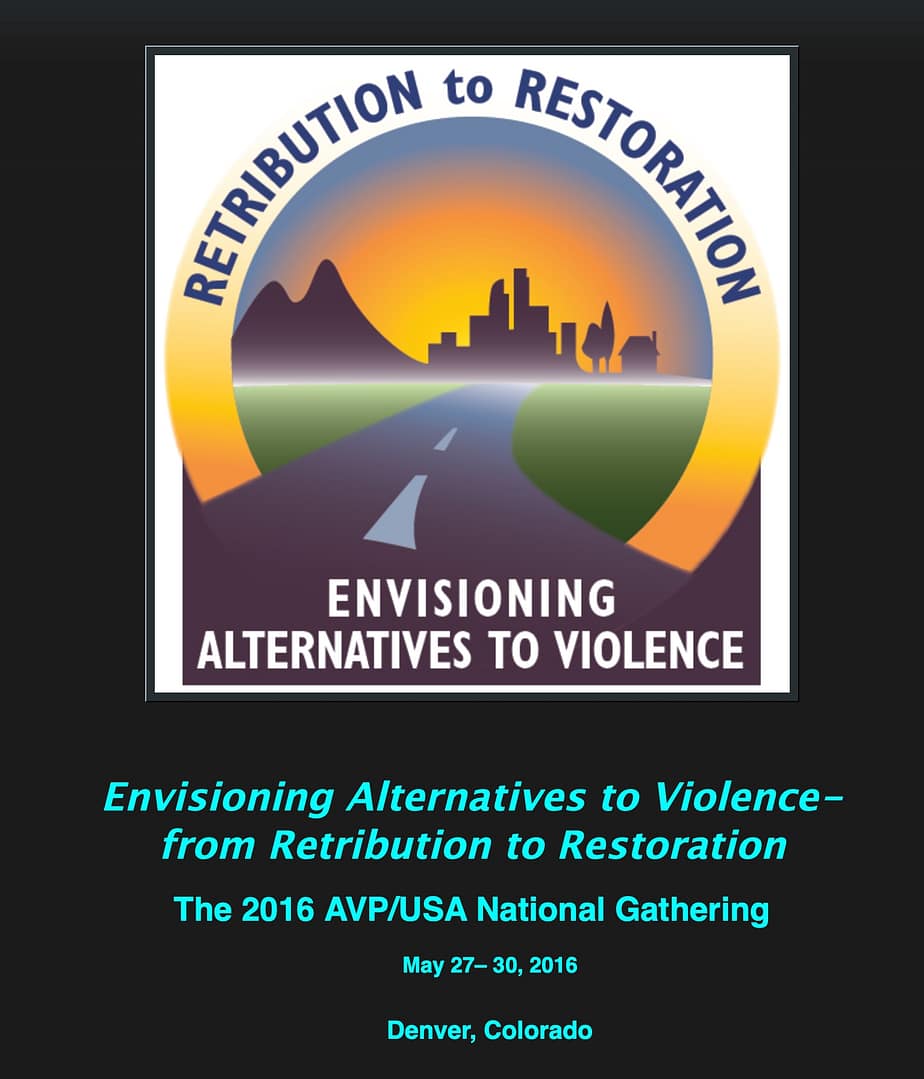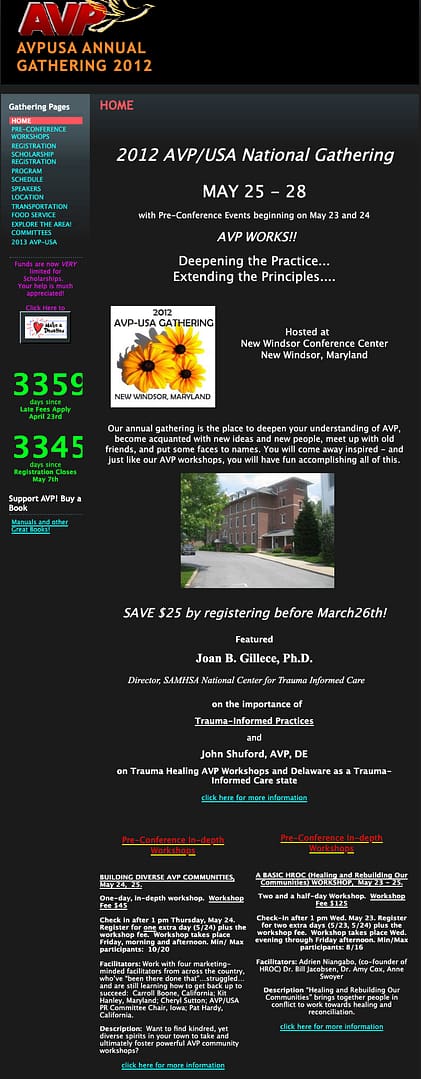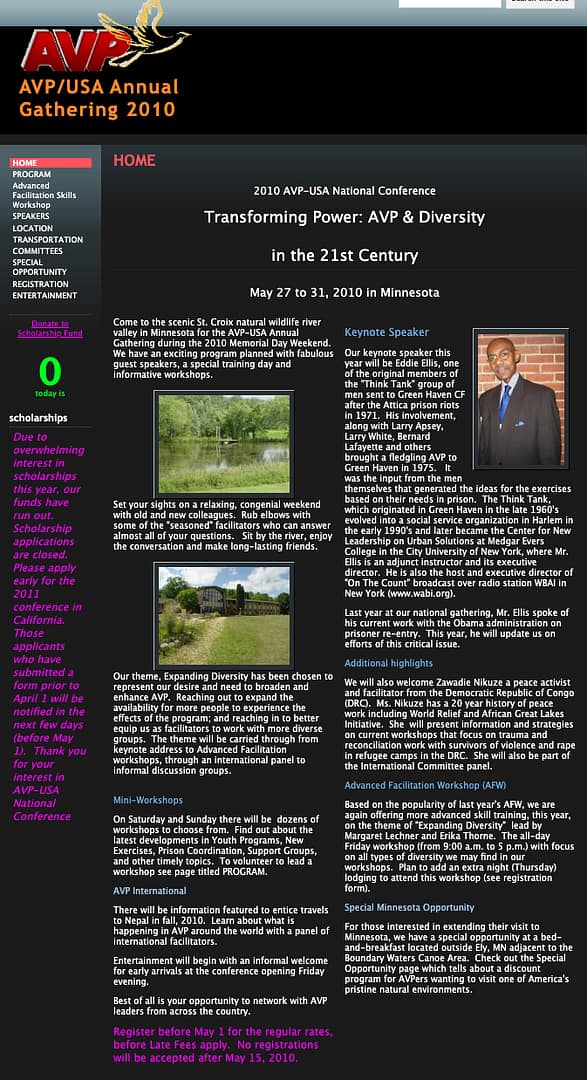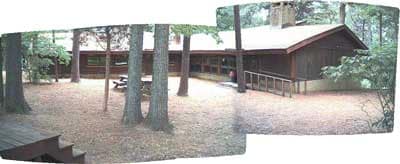Past Conferences
-
2025 Gathering
-
2024 Gathering
-
2023 Gathering
-
2022 Gathering
- 2021 Gathering
- 2020 Gathering
- 2019 Gathering
- 2018 Gathering
- 2017 Gathering
- 2016 Gathering
- 2015 Gathering
- 2014 Gathering
- 2013 Gathering
- 2012 Gathering
- 2011 Gathering
- 2010 Gathering
- 2009 Gathering
- 2008 Gathering
- 2007 Gathering
- 2006 Gathering
- 2005 Gathering
- 2004 Gathering
- 2003 Gathering
- 2002 Gathering
- 2001 Gathering
- 2000 Gathering
- 1999 Gathering
- 1999 Winter Board
- 1998 Meeting
AVPUSA 2011 ANNUAL GATHERING
Memorial Day weekend, May 27 – 30
Notre Dame de Namur
Belmont, California
MOVING FORWARD!!! Building Communities,
Welcoming Diversity, Exploring New Tools for the Future
Notes by Jamie Folk and Nancy Shippen of AVP Massachusetts
California Prison Program Panel
Summary of Events
SATURDAY, May 28
One of the most commonly mentioned, valuable experiences in the 2011 AVP/USA Conference was hearing Laura Magnani, Interim Regional Director for the American Friends Service Committee, Pacific Mountain Region give the Keynote talk. She is author of America’s First Penitentiary: A Two Hundred Year Old Failure (2000) and Beyond Prisons: A New Interfaith Paradigm for Our Failed Prison System (2006) that analyzes the racial, social and economic underpinnings of the criminal justice system and explores new models of justice. She is a Quaker, a member of the Berkeley Friends Meeting.
Laura spoke about “hard truth” and new paradigms. The first hard truth is racism. African Americans are incarcerated in the U.S. at a rate eight times higher than existed in South Africa at the height of apartheid. The American criminal justice system is used as a new form of discrimination. Federal funding requires law enforcement to focus on drug users. As a result, 5.3 million Americans are denied the right to vote.
The second hard truth is the intensification of incarceration. The punishment model moves in one direction, toward harsher punishment. More than 14,000 California inmates are in solitary confinement which is also done along racial lines.
New paradigms
The first step is truth telling and identifying the truth of the prison system. The second step is an apology, followed by steps to make the situation right. Forgiveness has almost left our society and that is part of the problem. Community is a large part of the new paradigms. Building communities means working with diverse groups and bringing them together into one. Can AVP do more to create support groups to help make survival possible? We need to test whether the alternative communities we are creating are actually something new or just an add-on to the norm of society. We need to move toward greater inclusion and restorative justice. We need to identify different truth and justice experiments to change our current system.
We also need to name abusive conditions that we see in an institution to prevent normalization of abuse from setting in. The next step is to link this work to a larger social movement. To be proved true, violence need only occur once; the occurrence of good requires repetition. Educating ourselves is important and there are resources for that, but we must not underestimate the power of the stories we see happening in our workshops. Education resources include:
Yes! magazine (summer 2011 issue)
The keynote was followed by a panel discussion: What Did California Do to Expand AVP in Its Correctional Institutions So Quickly? Panelists were George Giurbino, Director of Adult Institutions for the California Department of Corrections and Rehabilitation and a long-time supporter of AVP in California prisons; Kenya Williams, Principal of Vaca Valley Adult School at the California State Prison in Solano and an AVP facilitator; and Pat Hardy, President of AVP/California.
Pat Hardy said that in the ‘90s, AVP was a divided, diminishing group due to personality difficulties; it was active in only two prisons. Under Pat’s direction, a web site was developed, along with a database of everyone who had ever participated in AVP. The California team started community workshops and developed a full-time steering committee. Support from the central DOC opened all prisons, and AVP is now working to develop local councils. A regular coordinators conference call was scheduled to discuss specifics of each prison, which lessens the frustration level. They developed a list of requirements for entering a prison and added negotiation with each warden on lock-down policies. Pat said it’s important to work with each new warden and to have a regular meeting with the warden. She said positive relationships with officers, staff and administration are crucial.
“Quick and Easy workshop reporting” was created to keep accurate records; local coordinators did assessments of their programs and shared them with wardens. Every community workshop has at least one formerly incarcerated facilitator, and there is a “conscience committee” on the steering committee so that all facilitators are clear of mixed motives. They always allow time for debriefing at the end of a workshop.
George Giurbino provided stats for the California DOC: $11 billion annual budget which is 7% of the total state budget. The state has 172,000 incarcerated men and women at an annual cost of $44,000 each; 35,000 correctional officers; 33 prisons and 40 fire conservation camps. 33% of inmates are from Los Angeles. 93% are male. Those with life sentences include 25,000 with the possibility of parole and 3,864 without parole; 67 inmates are on Death Row; and 53% of inmates have violence in their past. Inmates earn “good time” at entry. The DOC will decrease the inmate population by decreasing the number of parole violators coming back to prison. Gang presence and insufficient programs lead to prison fights. The budget crisis is causing further cuts. George’s advice: Don’t get frustrated, don’t compromise your integrity, and be persistent.
Kenya Williams said to find a “worker bee” at each institution to be your contact person and help you negotiate the prison culture. Start your AVP program with leaders (the “shot-callers”) of every race. They will then sell the program to their groups. Hold back the hugs; they will compromise the program to staff and insiders.
Breakout Sessions
AVP as a Tool for Peace and Reconciliation
AVP started in Rwanda in 2001, and more than 2,000 people were trained — men and women, victims and perpetrators. Then AVP was asked to go to Burundi, to the Democratic Republic of Congo, and to Kenya. Healing and Rebuilding Our Communities (HROC) was introduced as a complement to AVP because people had been traumatized but had no way to talk about it. Facilitator David Bucura is a Rwandan Quaker and coordinator for the Central Africa region of the Africa Great Lakes Initiative, a project of Friends Peace Teams.
David spoke of the enormous disruption caused by the genocide and the frustration of not knowing how to begin to heal and rebuild the community. They heard about AVP in Uganda and asked if it could come to Rwanda. AVP proved amazingly helpful and expanded greatly when it trained the Gacaca judges of the traditional justice system, which was redeveloped to deal with the huge backlog of cases. From the first workshops with Ugandan and US facilitators, the model of a diverse leadership group was powerful. The Rwandan workshops have always included equal numbers of Hutus and Tutsis, both as facilitators and participants. When it became apparent that many participants were suffering from trauma, HROC was developed with the support from the United States and Burundi. Their ability to assess needs, find support in training, develop locally appropriate programs and then to share them widely is inspirational.
Extensive materials are available on the websites of the Friends Peace Teams: http://friendspeaceteams.org/FPTJ/ and African Great Lakes Initiative: http://www.aglifpt.org/.
Creating a Community Presence: Networking with Other Groups
Facilitators Diana Couch and Marion Bogan led participants in sharing experiences of how to attract AVP participants by creating a community presence.
Doing AVP In Spanish…A Session For Both English And Spanish Speakers
Facilitators Barbara Babin, Ana Barral, Margaret Lechner and Kathy Smith explored the need for Spanish workshops in prisons and the community, issues of recruitment and capacity building, the unique needs and characteristics of the Latino community around conflict resolution, and how we express key concepts in Spanish and adapt exercises so that they are comprehensible and culturally compatible.
Making Advanced Workshops Easier
Facilitator Marge Schlitt led participants in sharing their experiences of streamlining Advanced Workshops so participants have more time to engage in deep exploration. Marge shared ways to make Advanced Workshops less stressful for facilitators and more productive for participants.
New Thoughts And Creativity For Funding Your Project
Facilitators Roger Kluck and Pat Hardy presented successful fundraising and grantwriting practices from a fresh perspective, learning from others’ successes and failures. Roger shared the book Grant Writing for Dummies and http://www.grantwatch.com/ which offers free information. Roger and Pat led activities of envisioning and developing a grant idea. Roger is president of AVP-USA, and Pat is president of AVP-California.
Practicing What We Preach: Addressing Conflict in Your Local Council
Facilitators Stephen Matchett and Linda McCue led this group in sharing challenges that arise in AVP councils, and ways to address them in principled and loving ways. Stephen and Linda are AVP-California Steering Committee members.
Recruiting People of Color for Community Workshops
Facilitators Gina Chapa and Kenya Williams led this group in finding ways to approach people from another cultural background or race.
Technology Skill Share
Facilitator Lawrence Soehnel led this session in learning and teaching new technologies. Participants introduced each other to technology uses such as Twitter and donation buttons. Lawrence is AVP International’s Co-Clerk of Information.
Want your very own website? You, too, can be a webmaster
Facilitator Rick Krouskop led participants through what it takes to easily create a Chapter website, from getting a domain name to editing and maintaining the site. Participants took a look at http://www.avpinternational.org/, http://www.avpusa.org/, and a developing site for AVP Massachusetts using the same technology and format as the International site. After comparing the sites for content potential and complexity of maintenance, several people started to build their own websites. Rick has been Webmaster for AVP/USA since its inception in 1998.
Welcoming AVP Participants and Facilitators with Hearing or Vision Loss
Facilitators Susan Wolf and Kary Shender led this experiential workshop geared to developing strategies and accommodations that allow deaf, hard of hearing, blind, and legally blind people to participate fully in AVP workshops.
‘Off the Hook’ — The college theater was the setting for an evening musical production of the Poetic Justice Project called “Off the Hook.” Set in a prison marked by racial strife, the production followed the paths of three new inmates (“fish”) as they struggled with their incarceration and how to respond to the wisdom or corruption of older inmates. All cast members had been incarcerated in youth, county, state or federal prisons. Some had begun acting with the Poetic Justice Project while still inside. The public was invited to the production and was introduced to the work of AVP by a conference spokesperson. The cast introduced themselves; one had done an AVP Basic workshop.
Sunday, May 29
The day included breakout sessions, the annual meeting, and a memorial time for members of the AVP family who had died during the year. There were reminders of the need to support the participation of those from less affluent countries. Registration and donations to the AVP International Conference in Antigua, Guatemala, October 2-8, can be made at: http://www.avpinternational.org/IG2011/index.html.
Annual Meeting: See Minutes
Breakout sessions
AVP International Panel
Facilitators Nancy Shippen, John Shuford, Saskia Schuitemaker, David Bucura, Margaret Lechner and John Michaelis reported on their experiences with AVP in other countries. They described the structure of the AVP International Coordinating Committee, the upcoming International conference in Guatemala October 2-8, the work of the Friends Peace Teams Indonesian Initiative, the African Great Lakes Initiative and Pax in Los Americas.
Facilitators’ Learning Journey
Facilitators Katherine Smith and Margaret Lechner led a session that allowed participants to identify a profound moment of growth, explore similarities in those events, and brainstorm ways to provide those experiences for all facilitators. This information will be incorporated into new Training for Facilitators resources.
Maintaining and Developing Your Local Group of Facilitators
Ann Boone, Toby Laverty and Lawrence Soehnel led this workshop. Toby has been part of the success of Bay Bridge, the largest AVP council in California. He was hired experimentally as Outreach Coordinator in the northern Sierra mountains and is now volunteer Outreach Coordinator for Bay Bridge. Lawrence is AVP International’s Co-Clerk of Information.
Organizing a Community AVP Program
Facilitators Toby Laverty and Pat Hardy provided practical, simple, find-a-volunteer ideas that fill workshops, while creating a dynamic local group that spreads the word about AVP in the community. The two-step process was divided into Step 1-Finding Participants and Step 2-Keeping Track of Them.
Overcoming the Challenges for the Formerly Incarcerated Facilitator
Facilitators Mark Thomas, Cat MacDonald, Lindsay Manning and Russell Bowens led this group that addressed the obstacles formerly incarcerated people face when 1) contacting AVP and trying to get on a facilitation team; and 2) when on a team, the subtle or not-so-subtle dynamics that demonstrate a lack of equality on the team. The group also discussed possible problems of equality that are experienced by those coming out of prison into an community group or meeting former AVP team members.
Overview of the Public Health Model of Violence Prevention: How this applies to the future of AVP
This session, led by Fred Feucht and Carolyn Keys, compared the Criminal Justice, Restorative Justice and Public Health models of Violence Prevention. They explored adolescent development problems and ways that AVP can help teenagers avoid violence; the appeal of gangs and types of gangs; and the successful teen violence prevention programs initiated by public health leaders in Boston and Chicago. The central questions were, How do we take AVP to the streets, and how do we keep our young people out of the jaws of the prison system?
Preventing Misunderstandings and Overcoming Obstacles in Prison Workshops
Facilitators Judy Tretheway, Kenya William and Greg Callaghan explored the most effective ways of maintaining long-term relationships within your local prison. They identified “potholes” to watch for, as well as “bridges” that make AVP work for everyone in a prison setting.
Understanding Ourselves in a Diverse World
Facilitators Luke Janes, Barbara Babin and Rubye Braye presented methods for involving people of different backgrounds, races and life experiences in AVP workshops, which starts with understanding our own differences and how we approach others with our unique lens on the world.
Ways to Manage Workshop Paperwork and Reporting
How can we use record-keeping to improve our facilitating? How do we keep track of it all? And how do we make annual reporting easier? Facilitators Valentine Doyle, George Ramos and Marge Schlitt provided some proven ways.
Working with Challenging Group Dynamics
We have all had experiences where the AVP group process goes awry. Facilitators Robin Keeler LCSW and Terrill Keeler LMFT, both psychotherapists, examined the role that self-awareness can have in transforming these difficult situations.
Your Role in Sharing the Collective Wisdom, History, and New Ideas in AVP
Participants discovered what is happening in the collection of our organizational network’s knowledge bank, how to access it and how to contribute to it — led by facilitators Katherine Smith and Lawrence Soehnel.
ANNUAL GATHERING – MAY 2009
Adelphi University, Garden City, Long Island NY
ANNUAL GATHERING – May 2008
Firs Retreat Center, Bellingham, Washington
What Will The Future Bring For AVP?
ANNUAL GATHERING – May 2007
Day Spring Retreat Center, Ellenton, Florida
ANNUAL GATHERING – May 2006
Stonehill College, Easton MA
WALLS TO BRIDGES
Keynote Addresses:
Bo Lozoff – Prisoner Issues
Robin Casarjian – Forgiveness
AVP/USA Trustees Meeting
Stonehill College, Easton, MA
May 27, 2006
Present: Minga Claggett-Borne (recorder), Pat Hardy (process observer), Darrell Hefte (part- time), Terry Kayser, Donn Kesselheim (clerk), Marian Klostermann, Lolya Lipchitz, Grace McGrath, Joann Perry, Ray Rios, Hank Rivera, John Shuford, Ann Ward
Absent: Diana Couch
Nomination of Officers:
The national officers to be nominated at the Annual Meeting include: Donn Kesselheim- President, Pat Hardy-Vice President, Jo Ann Perry -Treasurer, Rubye Braye-Recording Secretary
AVP Logo Trademark
Joann Perry has applied for the AVP trademark. We will be trademarked as “Alternatives to Violence Project.” She expects to hear back from them regarding approval in September.
Financial Report
Financial data for Fiscal year was presented by Jo Ann Perry.
Committees are asked to provide the Finance Committee a close estimate of next year’s expenses.
Conference Committee.
A contract with the Florida site for 2007 conference was signed and is contingent on the Trustees approval. The contract as of now has some housing especially for the Help Increase the Peace Project (HIPP) community.(HIPP is a non-violent workshop offered through AFSC and adapted for teen participants.) Finance Committee members expressed concern over the investment in accommodating teen participants causing an overrun on the costs for this conference
Members expressed grave doubts about the mingling of teenagers and ex-offenders in an intimate conference. Daryl also had concerns about the legality of this and has not been able to talk to the conference site about that risk. The liability of having ex-sex offenders and youth together is serious, plus the joining of HIPP and AVP at an annual conference is setting a new precedent.
Structurally, we want to keep local autonomy to plan the conference with some national conference committee oversight.. The conference committee was instructed to come back with a statement concerning next year’s conference and its relationship to youth.
AVP/USA Trustees Meeting
Stonehill College, Easton, MA[1]
May 28, 2006
Present: Pat Hardy (co-clerk), Terry Kayser, Donn Kesselheim (clerk), Lolya Lipchitz, Ray Rios, John Shuford, Ann Ward, Peg Erlanger, Grace McGrath, Marian Klostermann, Joann Perry, Hank Rivera, Diana Couch, Minga Claggett-Borne (recorder), Darrell Hefte
Follow up to Conference Committee
We decided to clarify our purpose so as not to exclude any AVP facilitators from joining us at Meetings. This statement will be included in our documents saying all adult AVP facilitators can participate fully without identifying their sexual orientation or their offense. We especially are concerned to include AVP facilitators without regard to any past offense.
ACTION: A Sub-committee was appointed to write this new statement. Ray, Lolya, Donn, Ann, and John. Donn will convene.
The two tasks are to word a new statement and to decide whether it belongs in the bylaws or the policies.
ACTION: In addition the Committee of Committees asks the Restorative Justice Committee to encourage dialogue within AVP between offenders with violent crimes and victims. How do we restore any trust between outsiders and ex-prisoners?
- Recommendation by the Conference and Youth Committee.
DECISION: Minute of the 2007 AVPUSA Conference; Submitted May 28th, 2006
Due to numerous variables involved in the consideration of a conference venue, the Trustees direct the Conference Committee, working in concert with the local AVP conference committee, to secure a site in Florida for all adult AVP and adult HIPP facilitators, some of whom may be ex-offenders for the 2007 annual gathering.
Also, the conference committee will negotiate with the site management to assure the absence of any minor children during the extent of the conference.
Finally, the Trustees direct the Youth Committee to explore the possibility of including youth within the AVP/USA organization.
ANNUAL GATHERING – May 2005
Headlands Institute, Sausalito, CA
Attendees – AVP USA 2005 Annual Meeting –
Name | State | |
Dawn | Addy | FL |
Shakeel | Ali-El | CA |
Steve | Angell | PA |
Silvia | Ator | NM |
Barbara | Babin | CA |
Bob | Baker | CA |
Eileen | Baker | CA |
Bob | Barns | CA |
Bob | Beaudette | NH |
Steve | Birdlebough | CA |
Tracy | Booth | ME |
Rubye | Braye | NC |
Quentin | Childs | CA |
Minga | Claggett-Borne | MA – |
Lane | Clark | CA |
Evelyn | Cohen | CA |
Diana | Couch | CA |
Doug | Couch | CA |
Joseph | DiGarbo | PA |
Peg | Erlanger | MA |
Sandy | Farley | CA |
Tom | Farley | CA |
Judith | Favor | CA |
Fred | Feucht | NY |
Ellen | Flanders | NY |
Marc | Forget | AB |
Laurel | Gord | CA |
Lizette | Guy | CA |
Chia | Hamilton | CA |
Liz | Hamm | CA |
Pat | Hardy | CA |
Amy | Haritatos | CA |
Robert | Harvest | WA |
Darrell | Hefte | FL |
Susan | Hefte | FL |
John | Helding | CA |
Nancy | Helfrich | MN |
Sidney | Hinds | MN |
Fran | Howard | CA |
Lucia | Ishikawa | CO |
Kate | Jenkins | CA |
Rossie | Johnson | CA |
Dotty | Joos | CA |
Terry | Kayser | MN |
Chel | Kesselheim | WY |
Donn | Kesselheim | WY |
Marian | Klostermann | NE |
Jan | Krouskop | WA |
Rick | Krouskop | WA |
William | Lamontagne | MA |
Dick | Lewis | OR |
Rose | Lewis | OR |
Jim | Lindburg | CA |
Lolya | Lipchitz | IA |
Cathey | Lynn | NM |
Stephen | Matchett | CA |
Allen | McAfee | CA |
Aaron | McBride | NY |
Eddie | Meares | NY |
Anthea | Michaelis | WA |
John | Michaelis | WA |
Audrey | Miller | NM |
David | Miranda | NY |
Alan | Mobley | OR |
Tanna | Moontaro | CA |
Barbara | Moulton | CA |
Mike | Murphy | NY |
Bill | Murphy-Sharp | NV |
Donna | Murphy-Sharp | NV |
Aaron | Nell | IN |
Dick | Nethercut | MA |
Matthew | Oldham | MO |
Pat | Parker-Roach | MA |
Bill | Patten | MA |
“”Ret”” | Pennell | NE |
Joann | Perry | MN |
Sue | Porter | CA |
Charles | Pulcrano | CA |
George | Ramos | CA |
José | Reyes | NY |
Janet | Riley | CA |
Toby | Riley | NJ |
Radames | Rios | NY |
Henry | Rivera | CT |
Etta | Roebig | NY |
Kimberly | Rosa | CA |
Vicki | Rumbaugh | CA |
Deborah | Sanchez | WY |
Marge | Schlitt | NE |
Noel | Schwerin | CA |
Giri | Sequoya | W. |
Nancy | Shippen | MA |
John | Shuford | DE |
Chris | Solyntjes | MN |
Sherri | Sorro | CA |
Michael | Stapleton | AZ |
Alan | Taplow | VT |
Mark | Thomas | CA |
Alice | Waco | CA |
Cindy | Waite | CA |
Anne | Wallace-DiGarbo | PA |
Ann | Ward | PA |
Fred | Winter | CA |
Pat | Wixom | MO |
Katherine | Youngmeister | CA |
ANNUAL GATHERING – May 2004
Mount Olive Retreat Center
Farmington, Minnesota
Inmate Panel
Attendees – AVP USA 2004 Annual Meeting – Farmington, MN
MEMBER STATE
Diana Couch CA
Steve Angell PA
Dorenda Taylor WA
John Wiehmerding VT
Alan Taplow Vt
Marge Schlitt NE
Dotto Joos CA
Patrick Parker-Roach MA
Susan Hefte FL
Darrell Hefte FL
Scott Searles MO
Pat Hardy CA
Giri Sequoya WA, Australia
Nancy Shippen MA
Ann Ward PA
John Shuford DE
Abdul-Hakim As-Siddiq MN
Terrance Kayser MN
Richard Nethercut MA
Joann Perry MN
Chris Solyntyes MN
Ben Ennenga MN
Fred Feucht NY
Barbara Babin CA
Don Kesselheim WY
ANNUAL GATHERING – May 2003
Mount Olivet Retreat Center, Farmington, Minnesota
In attendance were about 80 AVP-USA facilitators.
Keynote Address: Restorative Justice
AVP-USA ANNUAL NATIONAL GATHERING
Camp Hanover in Mechanicsville, Virginia
Memorial Day Weekend 2002
This years Annual Conference was held at Camp Hanover in Virginia . Our Conference Committee, lead by Charles and Susan Oropallo, did a wonderful job of choosing this location and organizing this uplifting weekend.
There was a lot of time to get with other facilitators and share what is going on. The beautiful environment also gave us time to relax, meditate, hike and swim. The AVP USA Committees met to share their activities during the last year and plans for the future. Committee Reports are part of the Annual Meeting minutes. Many break-out sessions were offered for learning, sharing and reaching out. I will enclose a description of each of those sessions. We even had an evening of international folk dancing led by the very talented Nancy Penney.
The conference started out with a welcome from the Conference Committee chair, Charles Oropallo and the staff at Camp Hanover . Steve Angell followed with reflections on AVP. Then Dick Nethercut led us in a tribute to Zell Draz and Marjorie Kerr, both who have passed on this year. Many of us will not forget the contribution these ladies made to AVP.
During the conference, we heard from two very talented and informative speakers.
Carl Mays, author of “A Strategy for Winning”, shared some dynamic, interactive motivational thoughts on succeeding in life. He led us through some group activities to look into our AVP lives.
Tony Laguna, the author of “Chicken Soup for the Prisoners Soul”, shared some experiences he has had while writing this book. He and his wife, Laura, had some their books with them and shared their weekend with us. He is also the author of the upcoming “Chicken Soup for the Volunteers Soul”.scheduled for release July 15, 2002 .
On Sunday morning, Sef McBride, an ex-inmate, pulled together a panel of ex-inmates facilitators to discuss “What AVP means to me”. It was very inspirational to listen to these men and women. After all, isn’t this what AVP is about?
Congratulations to the Conference Committee for the super job they did in securing the location for us and putting together a terrific program.
Diana Couch
BREAK-OUT SESSIONS
Steve Angell Quick Decisions— “Workshop from Hell” Bring a story of your most challenging experiences as a facilitator, and hear how others think they would have handled it. | Tyrone Wallace Support Systems Inside—The STEPS (Support, Training, Education, Partnership) program currently running in western Massachusetts . | Terry Kayser National Program Evaluation—An invitation to provide input and express interest in joining a program evaluation of AVP in prison settings by other regional groups. Hear what is proposed inMinnesota working with the Wilder Foundation. | Alan Taplow, Don Kesselheim Vermont’s Reparative Board approach to Restorative Justice—A new ½ hour video of the Vermont Reparative Model, followed by discussion of how citizen volunteers may participate in healing process. |
Terry Kayser Creating Alternative Agendas—Exploring strategies to use when workshop dynamics change and render the prepared agenda useless. | Barbara Carter “The Way Home”—The Way Home is a program that operates in Delaware that reaches out to men and women in their transition from prison to home. | Charles Oropallo, Jo Kurzman Going Back In—An ex-inmate panel addresses some of the Why and How of ex-inmates going back into prisons as community AVP facilitators—how we can encourage the process allowing ex-inmates back inside as volunteers. | Barbara Toews Shenk, Ann Ward Restorative Justice Inside Prison—Exploring the RJ/AVP Relationship—Exploring the links between a variety of prison-based Restorative Justice approaches and AVP. |
Bob Barnes Transforming Power Mandala – workshop | Sef McBride, Charles Oropallo Stigmatization—An ex-inmate panel discussion of living with stigmas within the community and how AVP can help. | Kathy Rubenstein, Carol Peters Houses of Healing—Learn more about this Emotional Awareness Program, which uses psychological and spiritual healing techniques to develop personal insight and responsibility, and encourage forgiveness and transformation—an excellent follow-on to AVP. | John Shuford AVP Community Conferencing in prison—Simulating a community conference within the AVP trainer community when an inmate trainer has demonstrated behavior in serious violation of guidelines or prison rules. An example is an inmate getting into a fight and ending up in the hole. |
Chelsea Kesselheim New AVP Exercises—The new manual? Light and Livelies? Role-Playing? Whether new exercises or variations on old AVP exercises, come prepared to enjoy and to share your discoveries. | Terry Tyson “Foregiveness”—the infamous F-word—The presenter will tak a bit about her experience with it as a violent crime “victim” (notice the quotes) and mediator and share some readings, music and participatory exercises (not in the Advanced Manual) to use when the topic arises. | Stan Sloane The Impact of AVP on Inmate Behavior—Encouraging findings from research conducted at theDelawareCorrection Centerin Smyrna , De. | Darrell Hefte HIPP—Workshop formats, network, policy. TP? AVP alliance? Brief opening remarks; Discussion |
Tom Truitt Strategic Listening—Interactive practice session on Strategic Listening—a mediator’s technique for reaching win-win agreements. | John Shuford A “New Reality”—Anger Management through AVP. |
ANNUAL GATHERING – May 2000
Garrison, New York


